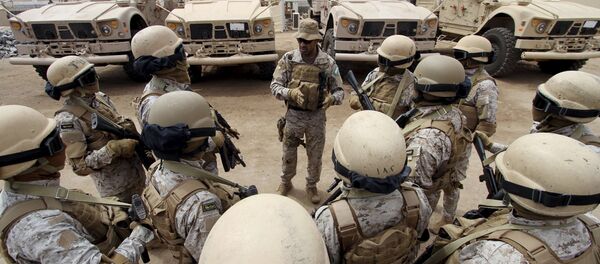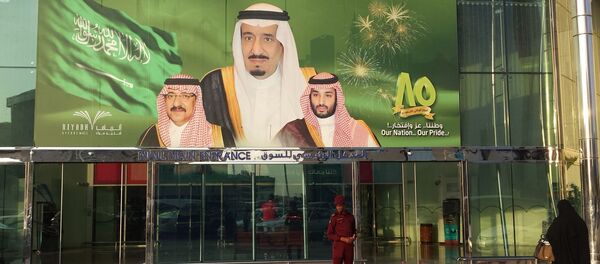The measures were announced amid shrinking oil prices and growing tensions with Iran – Saudi Arabia’s regional rival in oil exports.
Earlier it was reported that Saudi Arabia is currently experiencing the consequences of falling oil prices. The foreign exchange reserves of the Central Bank have further decreased, while the Saudi population has started to spend less money, German newspaper Deutsche Wirtschafts Nachrichten (DWN) reported.
The amount of physical currency in circulation has thus significantly decreased for the first time since 2000, Bloomberg reported. Analysts interpret this as a sign that the pressure on the state budget and the country's economy arising from falling oil prices has gradually become noticeable among the country's residents.
Cash withdrawals fell in February by around eight percent, while money transactions also significantly slowed down in February, DWN reported.
Earlier it was reported that Saudis ban ships transporting Iranian oil from entering their waters. According to the media, only eight tankers have left Iran and reached Europe since sanctions were removed in January.
Commenting on Riyadh’s austerity program Fahad Nazer, former political analyst at the Saudi embassy in Washington and a non-resident fellow at the Arab Gulf States Institute, told Radio Sputnik that one should not regard it as a plan to save the country from financial collapse, but rather look at it as an effort to transform Saudi Arabia’s economy.
“Saudis and certainly the policy makers wouldn’t classify or characterize it as an austerity plan at all. The official title is national transformation plan and they call it so because the aim is to reduce the Saudi economy on oil income and earnings. There has been an added urgency in the past few months largely due to the fact that oil prices have dropped since the summer of 2014,” Nazer said.
The analyst further spoke about what the deputy crown prince Mohammed bin Salman said. “He sees this as an opportunity to move the economy in a different direction for the future due to the fact that there is a realization that oil is simply not a reliable source of revenues and it cannot be the engine of the Saudi economy indefinitely.”
“The public sector needs to be reduced and private sector needs to play more of a role and all of that is very closely related to reducing the economy’s dependence on oil,” Nazer said.
According to the analyst, the deputy crown prince spoke with ‘refreshing candor’ about Saudi Arabia’s economy. “The prince said that we are grateful that we have the oil and oil will continue to play an important role but it cannot be an engine of the Saudi economy for the foreseeable future.”
Nazer said that he thinks the prince realizes that the current model needs to be changed to essentially address the economic and demographic realities of Saudi Arabia.
The Saudi population has increased many folds from 1970 when it was 5 million to over 22 million right now. The demands for more jobs are constant. There are serious economic challenges that Saudi Arabia has to face,” the analyst concluded.




